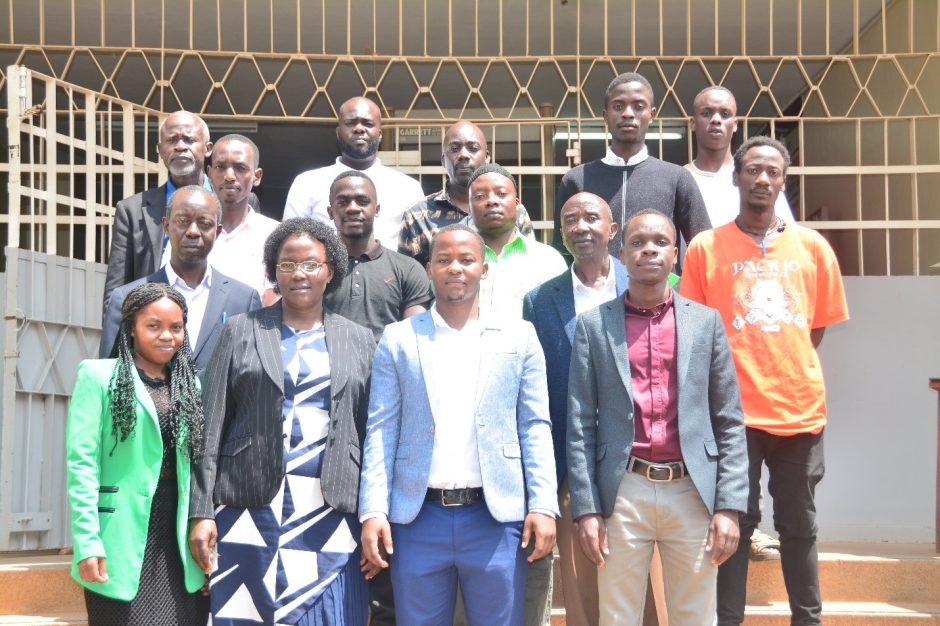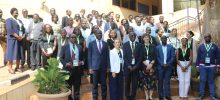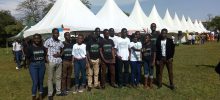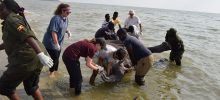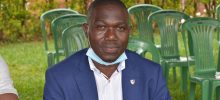Makerere University Hosts Strategic Breakfast Meeting to Boost Feed Industry Partnerships and Student Training
The College of Veterinary Medicine, Animal Resources and Biosecurity (CoVAB) at Makerere University convened a breakfast meeting aimed at strengthening ties between academia and Uganda’s Animal feed industry. The event held on Thursday, September 18th, 2025, brought together key stakeholders to discuss collaborative opportunities in student training, curriculum development, and industry innovation.
Speaking on behalf of the Head of the Department of Livestock and Industrial Resources (LIR), Dr. Margaret Nabulime emphasized the importance of the meeting as a platform for exchanging experiences with feed industry partners, particularly those who host students for internships.
The feed industry plays a critical role in ensuring access to nutritious feed for animals, she said, and expressed gratitude to firms and individuals who have consistently supported student training through hands-on engagement during their internship placement.
The breakfast meeting focused on advancing strategic collaboration between the university and feed industry stakeholders. Discussions centered on enhancing partnerships to support student training and improve internship programs by aligning them more closely with industry needs. The meeting served as a platform to explore future collaborations in training, outreach, and innovation, with a shared goal of bridging the gap between academic instruction and practical industry demands.
Participants included representatives from leading feed companies, academic staff, and student coordinators. The discussions highlighted the need for more structured internship programs, increased industry input in curriculum design, and joint research initiatives to address emerging challenges in animal nutrition and food security.
The meeting further urged feed industry stakeholders to deepen collaboration with academic institutions in preparation for the implementation of the Feeds Act 2024. Compliance to see standards and guidelines, according to Dr. Nabulime would not only improve industry practices but also enhance students’ understanding of emerging standards in feed safety and production.
The college also extended an appeal for continued support in providing structured internship placements that expose students to real-world practices in feed manufacturing, agribusiness, and veterinary services. Dr. Nabulime highlighted the value of mentorship and skills transfer, encouraging industry professionals to actively engage in guiding students and sharing technical expertise that complements academic instruction.

Dr. Margaret Nabulime ( R ) the Feed Coordinator at CoVAB steered the meeting
Feedback from industry partners on student performance and curriculum relevance was identified as a critical component in refining CoVAB’s training programs. Dr. Nabulime stressed that such input would help ensure graduates are equipped with the competencies needed to meet current and future market demands. She also invited stakeholders to participate in joint research and innovation initiatives focused on addressing sector challenges and promoting sustainable development in animal health and production.
In terms of long-term collaboration, CoVAB proposed expanding internship sites to accommodate more students and strengthening partnerships through joint curriculum reviews. The college also expressed interest in co-hosting capacity-building workshops and seminars to enhance technical skills and promote continuous professional development. Additionally, research collaborations were proposed in areas such as feed formulation, efficiency, and safety, including antimicrobial resistance (AMR) management.
The meeting concluded with a shared commitment to bridge the gap between academia and industry, ensuring that Uganda’s veterinary and livestock sectors are supported by well-trained professionals and guided by ethical, science-based practices.
Story by Harriet Musinguzi


